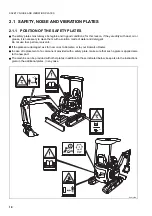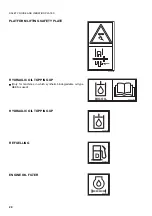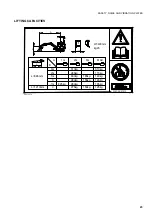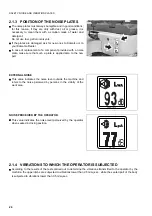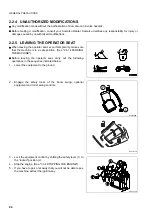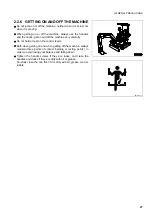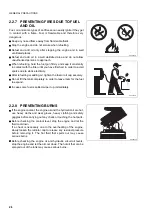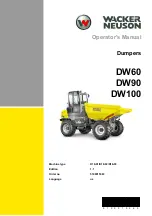
GENERAL PRECAUTIONS
28
2.2.7 PREVENTING FIRES DUE TO FUEL
AND OIL
Fuel, oil and some types of antifreeze can easily ignite if they get
in contact with a flame. Fuel is flammable and therefore very
dangerous.
q
Keep any naked flame away from flammable fluids.
q
Stop the engine and do not smoke when refuelling.
q
Refuel and add oil only after stopping the engine and in well
ventilated places.
q
Refuel and add oil in a well delimited area and do not allow
unauthorized persons to approach.
q
When refuelling, hold the fuel gun firmly and keep it constantly
in contact with the filler until you have finished, in order to avoid
sparks due to static electricity.
q
After refuelling or adding oil, tighten the fuel or oil cap securely.
q
Do not fill the tank completely, in order to leave room for the fuel
to expand.
q
In case some fuel is spilled, wipe it up immediately.
2.2.8 PREVENTING BURNS
q
If the engine coolant, the engine oil and the hydraulic oil are hot,
use heavy cloths and wear gloves, heavy clothing and safety
goggles before carrying out any check or touching the hot parts.
q
Before checking the coolant level, stop the engine and let the
fluid cool down.
If a check is necessary due to the overheating of the engine,
slowly loosen the radiator cap to release any residual pressure
before removing it. The hot fluid that spurts out may cause
serious burns.
q
Before checking the engine oil and hydraulic circuit oil levels,
stop the engine and let the oil cool down. The hot oil that can be
sprayed out of the tank may cause serious burns.
RKA00480
RKA00490
RKA00500





